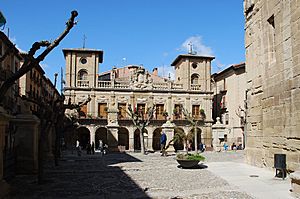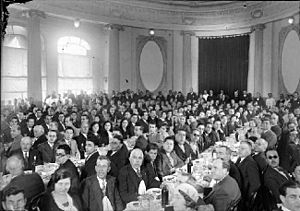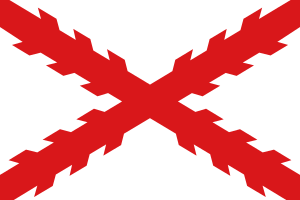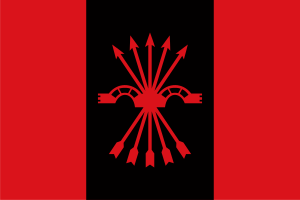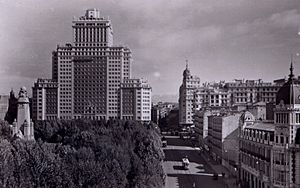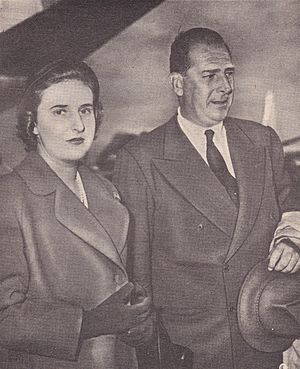Jesús Elizalde Sainz de Robles facts for kids
Quick facts for kids
Jesús Elizalde Sainz de Robles
|
|
|---|---|
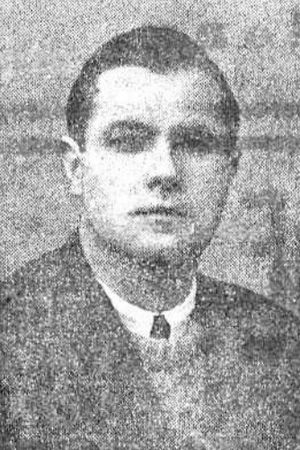 |
|
| Born |
Jesús Elizalde Sainz de Robles
1907 Viana, Spain
|
| Died | 1980 Vejer de la Frontera, Spain
|
| Occupation | lawyer |
| Known for | politician |
| Political party | Comunión Tradicionalista |
Jesús Elizalde Sainz de Robles (1907–1980) was a Spanish politician. He was part of the Carlist movement. Carlism was a political movement in Spain that supported a different royal family branch.
Jesús Elizalde served in the Spanish parliament, called the Cortes. He was a member during two different periods. First, in 1936, during the time of the Second Spanish Republic. Later, from 1954 to 1958, during the period known as Francoism.
During Franco's rule, he was a member of the political group called Falange Española Tradicionalista. He also led the Carlist organization in Navarre from 1942 to 1944. He believed in working with the Franco government and supported a specific royal family for Spain.
Contents
Jesús Elizalde's Family and Early Life
Jesús Elizalde's family came from Viana, a town in Spain. His great-great-grandfather, José Elizalde Martínez de Vidaurre, was a skilled craftsman. Over time, the family became quite successful.
His father, Fructuoso Elizalde Sabando (1858-1944), was a respected person in Viana. He was known as a wealthy landowner. Fructuoso served as a local council member and was even the mayor of Viana from 1893 to 1903.
In 1895, Fructuoso married Guadalupe Sainz de Robles (born 1872). She was from Arnedo. Her father was a school director in nearby Calahorra. Jesús's parents lived in Viana and had six children. Jesús was the third child.
Education and Career
Jesús first went to school in Logroño in the early 1900s. He later studied law at the University of Oviedo. However, he finished his law degree at the University of Zaragoza in 1934. He was 26 years old when he graduated.
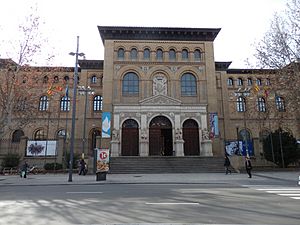
In 1935, Elizalde became a lawyer in Pamplona. It is not clear if he worked as a lawyer before the Civil War began.
Jesús Elizalde married María del Socorro Ureña y Mantilla de los Ríos. She passed away in 2010. Her father was a poet and writer from Andalusia. Her mother's family owned a lot of land. Jesús and Socorro did not have any children. They lived in Madrid after the war.
Some of Jesús's relatives were also notable. His nephew, Felipe Zalba Elizalde, became a bishop. Another nephew, Inocencio Zalba Elizalde, was involved in the Carlist movement in the 1960s. Jesús's younger brother, Ángel Elizalde Sainz de Robles, fought in the war and died in 1939. His sister Carmen joined a religious group.
Political Life During the Second Republic
Jesús Elizalde grew up in a Carlist family. His father was involved in the movement, but Jesús became more active. He started speaking at Carlist events in 1932. He gave speeches in places like Navarre, Cantabria, and Catalonia. He spoke alongside important Carlist leaders.
From 1933 to 1934, he often spoke to crowds in many towns and cities. These included Vitoria, Pamplona, Palencia, Zaragoza, and even Madrid. People in the Carlist newspapers called him a "cultured lawyer" and praised his "beautiful lectures."
Elizalde criticized the Republic. He said it brought problems and that democracy made Spaniards dependent on powerful local leaders. He called Marxism and separatism the main enemies of Spain. He supported a traditional monarchy and hinted at the Carlist royal family's claim to the throne.
By the mid-1930s, Elizalde was important in the Carlist movement in Navarre. In 1934, he became the head of the Carlist youth group for the region. He started leading Carlist rallies. Historians say he was one of the Carlist speakers who used strong and firm language.
He criticized not only left-wing parties but also other right-wing groups. He called some Catholic groups "hypocritical." However, he also tried to gain support from young Catholic groups and Basque Catholics.
Before the 1936 elections, Elizalde was a well-known speaker. He was unexpectedly chosen to run for the Cortes (parliament). The previous Carlist leader decided not to run. Elizalde was chosen because he was a friend of a key Carlist youth leader.
The right-wing group he belonged to won the election. Elizalde received many votes and became the youngest Carlist member of parliament. He served for five months. During this time, he was not very active in parliament. He was mostly known for attending Carlist public events.
Role in the Spanish Civil War
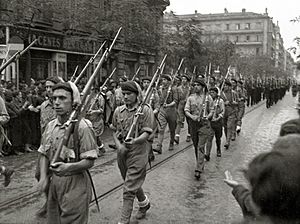
In the summer of 1936, Elizalde was involved in the plan to overthrow the Republic. The Carlists were divided on how to join the military uprising. Elizalde supported joining the uprising almost without conditions. In July, he traveled to France and convinced the Carlist leader, Don Alfonso Carlos, to support the plan.
When the war started, he joined the Carlist wartime group in Navarre. He helped organize the requeté troops. Requetés were Carlist volunteer soldiers. On July 23, he joined Carlist volunteers sent to Zaragoza. It is not clear if he fought as a requeté or was a political leader with them.
For the next few months, he traveled around the areas controlled by the Nationalists. He gave speeches in many cities, including Teruel, Burgos, Pamplona, and Salamanca. At this time, he held the rank of alférez (a junior officer) in the requeté.
In early 1937, Elizalde was concerned about the military's strict policies towards Carlist leaders. He wanted the main Carlist leader, Fal Conde, to be allowed to return from exile. He hinted that there might be a break between the army and the Carlists.
He did not participate in the important meetings about the forced political unification of parties. However, he later agreed with the Carlists who chose to follow Franco's orders. In May 1937, Franco's government named him one of two "political advisors" for the new unified military group, Milicia Nacional. This made Elizalde one of the important Carlists in the new state party, Falange Española Tradicionalista.
For the next two years, Elizalde was caught between Carlists who wanted to work with Franco and those who did not. In March 1938, Franco appointed Elizalde to the political committee of Falange. In this role, he tried to keep the Carlist identity alive. He focused on the requeté efforts in his speeches. He also complained about the Falangist ideas dominating official messages.
In February 1939, after his younger brother died, Elizalde wrote to Franco. He protested that Carlism was being pushed aside. He also argued about local appointments. Shortly before the Nationalists won the Civil War, he resigned from his role as a political advisor. He also resigned from the political committee. In February 1939, the Carlist leader Fal Conde appointed him to a new Carlist leadership group in Navarre.
Life During Early Francoism
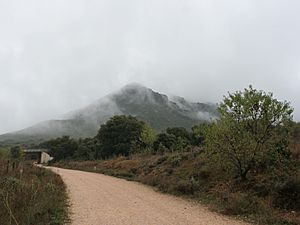
After the war, Elizalde continued to be active as a Carlist speaker. However, he stayed within the limits allowed by Franco's government. He helped find ways to express Carlist identity without directly challenging the regime. He helped start the annual climb to Montejurra, a mountain important to Carlists.
In 1940, Elizalde moved to Madrid. He joined the local lawyers' association and started working as a lawyer. He was moderately involved in the Carlist movement in Navarre in the early 1940s. When the party faced more problems, the main Carlist leader, Fal Conde, made Elizalde the new head of the Carlist group in Navarre in 1942.
In this new role, Elizalde faced confusion and disagreement. Local Carlist leaders were divided on whether to work with Franco's government or with the Alfonsists (another group supporting a different royal family). Elizalde seemed to prefer a strong stance against the regime. In 1942, he suggested that Carlists leave all official government groups. This was a protest after an event called the Begoña incident.
In 1943, he signed a document called Reclamación del Poder. This document asked for the return of the Traditionalist monarchy. In 1944, he supported Carlists joining a plan against Franco. His views on which royal family should rule are not entirely clear. Even though he was trusted by Fal Conde, he talked with another Carlist leader about working with the Alfonsist claimant, Don Juan.
In 1944, the entire Carlist group in Navarre asked the Carlist regent, Don Javier, to call a big Carlist meeting. They wanted this meeting to end the regency and choose a new king. When Fal Conde and Don Javier rejected this plan, the entire group resigned in November 1944.
Elizalde did not go with another Carlist leader to visit Don Juan in 1946. In his private letters, he wrote about the mistakes of the "Juanistas" (supporters of Don Juan). However, in the same year, he signed a letter asking Don Javier to end his regency. In 1947, he protested against a pamphlet that strongly criticized a pro-Juanista Carlist leader.
During the campaign for the Law of Succession, Elizalde signed a letter to Franco. This letter stated that a Traditionalist monarchy was the only good way forward for Spain. He sometimes wrote articles in El Pensamiento Navarro, a Carlist newspaper. He tried to keep the Carlist identity alive and remember their role in the "Crusade" (the Civil War). He continued to support the Montejurra ascent. He lived in Madrid and worked as a lawyer. He also sought positions in the local Bar Association.
Later Years During Francoism
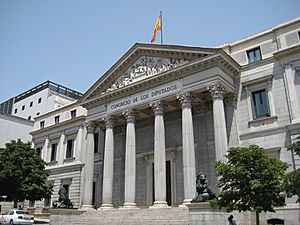
In the early 1950s, Elizalde seemed to be less active in politics. He was not very involved in either the secret Carlist groups or the official Franco government. His political activity was mainly signing various letters. For example, in 1950, he signed a letter about financial help for a Carlist club in Pamplona.
Changes began in 1953. He was seen at cultural events with Carlists who strongly supported Franco's government. In early 1954, Franco met with him privately. The purpose of this meeting is unknown. Soon after, he started appearing at official events with important government figures.
In 1954, Franco appointed Elizalde as a member of the National Council of Falange. This appointment automatically gave him a seat in the Cortes (parliament). This was the first time he held an official position since his resignation in 1939.
The term of the 6th National Council ended in 1955. However, Franco re-appointed Elizalde to the 7th National Council in the same year. He served for the full three-year term. As a council member, he again had a seat in the Cortes until 1958.
Elizalde was not re-appointed to the National Council in 1958. After four years in important government positions, he was no longer at the top levels of the regime. We do not know why he was chosen for these roles or why he left them. There are no details about his activities in the National Council or the Cortes during this time. He was not mentioned in newspapers, except for an article he wrote in Punta Europa, a Carlist magazine.
It is not clear if the end of Elizalde's time in the Cortes was related to an event in 1957. This event was called the Acto de Estoril. About 50 Carlists visited Don Juan and declared him the rightful Carlist heir. Because of his past roles, Elizalde was one of the most important people at this event. This act showed his clear support for Don Juan and his final break with the other Carlist group.
However, this event turned out to be Elizalde's last major political act. He did not join Don Juan's inner circle or other important groups. He soon disappeared from public life. It is not known if he was pushed aside or if he chose to withdraw. He was only about 50 years old, but he was no longer featured in the media. Historians do not list him as being involved in politics after this time. The only exception is in 1967, when he briefly served as vice-president of a group for Carlist wartime volunteers who supported Don Juan.
See also
 In Spanish: Jesús Elizalde para niños
In Spanish: Jesús Elizalde para niños
- Carlism
- Traditionalism (Spain)
- Carlo-francoism


